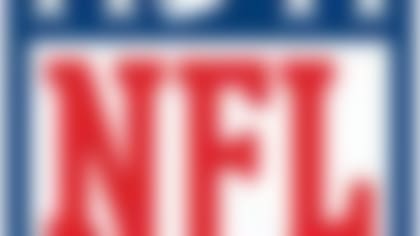Generally in the month of March, I get tired of lolling in the California sunshine. So I head slightly east and loll in the Arizona sun for a week of Spring Training baseball. Usually, there are plenty of baseball luminaries milling around the respective parks. This year, that list included Bo Jackson.
As a child of the '80s, Jackson was the greatest thing that ever happened to my sporting life. Not only was he the most incredible athlete I'd ever seen, his Tecmo Super Bowl avatar is still the most unstoppable digital creation to ever grace a television screen. It's the reason I'm proud to own this limited edition t-shirt.
Fantasy free agency tracker
Darren McFadden is staying put, but plenty of free agents are on the move. Keep up with them in our Fantasy Tracker. More ...
In short, Jackson was a big part of my memories of the NFL in the 1980s. So was Gary Kubiak.
Yep, Gary Kubiak. Mostly because he was a staple of the Broncos sideline. As John Elway's backup for life, Kubiak was always there to confab with Elway during timeouts and take those meaningless late season snaps.
Nowadays, Kubiak is still patrolling NFL sidelines. Only now he's doing it as a coach as opposed to a player. All of which is a long way around to setting up this week's Going Deep. Now that the former top Texan is calling plays in Baltimore, what does it mean for the Ravens offense. My pal Alex Gelhar did a great job breaking down the film in his latest Film Study column, but now we're going inside the numbers to see how Kubiak's arrival in B-more will impact Joe Flacco and company.
One difference: Let's go back to Kubiak's time in Denver. Not as a player, but as the offensive coordinator. He called the plays during Mike Shanahan's time in the Mile High City, which could give us a glimpse into what he potentially brings to Charm City. Specifically, we'll look at the final three seasons he spent with the Broncos (2003-05).
To begin with, Kubiak enjoyed running the ball. A lot.
Kubiak's last days as the Broncos' offensive coordinator coincide with the shift in dominant passing offenses around the NFL. The days of ground-and-pound being the norm among NFL attacks was on its way out. In 2003, just five teams ran the ball more than 50 percent of the time. The very next season, five quarterbacks posted 4,000-yard passing seasons.
Nonetheless, the Broncos remained a run-first outfit. More notably, they were one of the league's top rushing teams while featuring a variety of different running backs. In consecutive seasons, Clinton Portis, Reuben Droughns and Mike Anderson all topped 1,000 rushing yards in Kubiak's offense.
In Denver, the Broncos achieved that success with a collection of smaller, quicker offensive linemen. That's a feature the Ravens won't offer. Nonetheless, Kubiak plans to implement his zone-blocking scheme to get the offense rolling downhill. But it begs the question -- how will Baltimore's backs factor into the passing game?
Here it's not totally fair to judge on past performance. In Kubiak's final three seasons calling plays in Denver, no running back caught more than 38 balls. But Kubiak also never had a dual-threat back like Ray Rice ... or Bernard Pierce for that matter.
Even during a disappointing 2013 campaign, Rice managed to snag 58 passes and Pierce added another 20 catches. The nature of the league would almost seem to dictate that Kubiak will have to integrate his rushers into the aerial game more. It's something he doesn't seem averse to, considering the number of passes Arian Foster regularly caught with the Texans.
Free-Agent Tracker

Follow all the developments on the NFL's open market with our up-to-the-minute tracking of 2014's free agents. **More...**
Of course, a passing game can not survive on running backs alone. That means opposing defenses (and fantasy owners) won't be able to ignore the Smiths -- Torrey and Steve. Whether it was Rod Smith and Ashley Lelie in Denver or Andre Johnson in Houston, Gary Kubiak has always included playmaking receivers. In nine of his 11 seasons as the Broncos offensive coordinator, a wideout posted 1,000 receiving yards.
Of equal importance in Kubiak's passing offense is the tight end. For a large chunk of his time in Denver, Kubiak was blessed with Shannon Sharpe in his lineup. But even after the eventual Hall of Famer departed for Baltimore, Denver wasn't afraid to get the far less heralded Jeb Putzier involved. Similarly, Owen Daniels became a quality contributor once Kubiak moved to Houston.
That bodes well for Dennis Pitta. The Ravens tight end missed most of 2013 after offseason surgery, but contributed immediately upon his return. He should start the 2014 season healthy and will work in an offense that should do its best to target him frequently. With the fantasy tight end position lacking depth, Pitta's return to relevance should be a welcomed sight.
The biggest hope from Kubiak's move to Maryland is that fantasy owners can see some sort of revival from last year's moribund backfield. While some of that is contingent upon changes along the offensive line, a change in offensive philosophy should help as well.
Marcas Grant is a fantasy editor for NFL.com and the 1994-95 Trojan Hall Tecmo Super Bowl champion. Follow him on Twitter @MarcasG.



